#Jewish ethics
Explore tagged Tumblr posts
Note
So what’s the modern interpretation of the laws about keeping slaves? I’ve heard that said laws where a lot more kind to slaves then the surrounding nations but, like, it’s still slavery?
Hi anon,
With Pesach coming up, I'm sure that this question is on a lot of people's minds. It's a good question and many rabbanim throughout history have attempted to tackle it. Especially today, with slavery being seen as a moral anathema in most societies (obviously this despite the fact that unfortunately slavery is still a very real human rights crisis all over the world), addressing the parts of the Torah that on the surface seem to condone it becomes a moral imperative.
It's worth noting that the Jewish world overall condemns slavery. In my research for this question, I came across zero modern sources arguing that slavery is totally fine. I'm sure that if you dug deep enough there's some fringe wacko somewhere arguing this, but every group has its batshit fringe.
Here are some sources across the political and religious observance spectrum that explain it better than I could:
Chabad (this article is written by Rabbi Tzvi Freeman, a wonderful rabbi whose words I have learned deeply over the years. He is one of my favorite rabbis despite not seeing eye to eye with a lot of the Chabad movement)
Conservative (to be clear: this is my movement; it's not actually politically conservative in most shuls, just poorly named. We desperately need to bully them into calling themselves Masorti Olami like the rest of the world. It's [essentially] a liberal traditional egalitarian movement.)
Conservative pt. 2 (different rabbi's take)
Reform (note that this is from the Haberman Institute, which was founded by a Reform rabbi. Link is to a YouTube recording of a recent lecture on the topic.)
Chareidi (this rabbi is an official rabbi of the Western Wall in Israel, so in a word, very frum)
Modern Orthodox
I want to highlight this last one, because it is written by the Rosh Yeshiva of Yeshivat Chovevei, which is a progressive Modern Orthodox rabbinical school. They work very hard to read Torah through an authentically Orthodox lens while also maintaining deeply humanist values. As someone who walks a similar (if not identical) balancing act, this particular drash (sermon) spoke very deeply to me, and so I'm reposting it in its entirety**
[Edit: tumblr.hell seems real intent on not letting me do this in my original answer, so I will repost it in the reblogs. Please reblog that version if you're going to. Thanks!]
Something you will probably notice as you work your way through these sources, you'll note that there are substantially more traditional leaning responses. This is because of a major divide in how the different movements view Torah, especially as it pertains to changing ethics over time and modernity. I'm oversimplifying for space, but the differences are as follows:
The liberal movements (Reform, Renewal, Reconstructionist, etc.) view halacha as non-binding and the Torah as a human document that is, nevertheless, a sacred document. I've seen it described as the spiritual diary of our people throughout history. Others view it as divinely inspired, but still essentially and indelibly human.
The Orthodox and other traditional movements view halacha as binding and Torah as the direct word of G-d given to the Jewish people through Moshe Rabbeinu (Moses) on Mt. Sinai. (Or, at a minimum, as a divinely inspired text written and compiled by people that still represents the word of G-d. This latter view is mostly limited to the Conservative and Modern Orthodox movements.)
Because of these differences, the liberal movements are able to address most of these problematic passages by situating them in their proper historical context. It is only the Orthodox and traditional movements that must fully reckon with the texts as they are, and seek to understand how they speak to us in a contemporary context.
As for me? I'm part of a narrow band of traditional egalitarian progressive Jews that really ride that line between viewing halacha as binding and the Torah as divinely given, despite recognizing the human component of its authorship - more a partnership in its creation than either fully human invention or divine fiat. That said, I am personally less interested in who wrote it literally speaking and much more interested in the question of: How can we read Torah using the divinely given process of traditional Torah scholarship while applying deeply humanist values?
Yeshivat Chovevei does a really excellent job of approaching Torah scholarship this way, as does Hadar. Therefore, I'm not surprised that this article captures something I have struggled to articulate: an authentically orthodox argument for change.
183 notes
·
View notes
Text
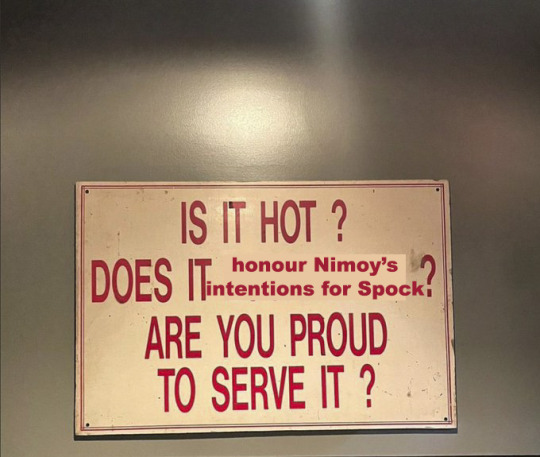
sorry I'm not a photoshop master but would someone mind hanging this up in the SNW writers' room because I think we have all had enough
#Nimoy's portrayal of Spock is INTENTIONALLY Jewish coded and visibly queer coded#you can claim ignorance as a casual fan but as a writer it's your JOB to know and honour this shit#SNW has done ok with autistic coding of Spock but the erasure of the other stuff feels deliberate at this point#like cishet white nerd men want him to be like them so they make these bizarro choices that feel like a totally different person#sorry but he's not FOR you#he was NEVER for you#you already have everything else please just let him be the way he was intended to be#let us have one gd thing#why are the opinions of people who don't care about Star Trek's ethics and legacy more important than the opinions of the those who do#star trek#strange new worlds
3K notes
·
View notes
Text
New Pinned Post: How This Blog Approaches The Conflict
I am not normally a politically-focused blog. I am normally a personal blog that enjoys fandom and occasionally processes my own past trauma. As this war goes on, I am finding that it is against my personal ethics and morals to stay silent when I have the ability to educate and remain more patient than most. (My patience is not endless. I’m still human). So, while disinformation/misinformation, and propaganda abound on all sides. I feel like the best way I can help lower the temperature is to put my skills to use.
Primary Political Goals:
1. Emphasize humanity above all and use verifiable information and good faith education and discourse to reduce tension.
2. Do my absolute best to move the conversation away from polarizing, accusatory discourse that forces Jews, Muslims, Arabs, Israelis, and Palestinians to play a desperate game of defense and toward a shared mutually beneficial peace that honors each grouped indigeneity culture, and connection to their ancestral homeland.
3. Demonstrate and emphasize both Jewish-Muslim solidarity and Israeli-Palestinian solidarity.
Primary Blogging Goals:
As a diaspora Jew, my primary goal is threefold
1. Educate about antisemitism and Islamophobia—including calling it out and explaining it to the best of my ability.
2. Elevate responsible, verifiable voices—regardless of religion or nationality—and information to the best of my ability.
3. Demonstrate effective activism and provide insight and encouragement for other to find their most effective way to contribute to fostering peace.
Elaboration:
1. I have the most experience with an understanding of antisemitism. I am more of an expert in antisemitism and have more ability to identify and educate about it. That said: I will not tolerate any Islamophobia or racism and if I don’t have the ability to educate about it, you will be blocked. If I have the ability to educate about it, I will do so and give you the chance to read about it and adjust your behavior. If you do not do so, I will block you.
2. This does not mean equal representation of all nationalities and religions. It means the best informed and most reliable voices AND the voices I personally have the best ability to vet, verify, and substantiate. This will often mean Jewish voices and Israeli voices. This is me staying in my lane, not choosing to suppress any voice. I will not elevate purposefully divisive, tokenized, or uninformed voices. This does not mean that I won’t elevate Palestinian, Muslim, and Arab voices as well. I will. But my primary goal here is responsibility. To do that, I have to stay in my lane.
3. I am most effective as an educator on this matter, a guide to finding reliable peace-oriented voices, and an example of patience. There’s a great desire among many to protest or create videos detailing their opinions and stances. Not only is this primarily performative—especially among non-Muslim/non-Palestinian goyim—it has the potential to be extraordinarily damaging to Jews both in Israel and in Diaspora as well as to Arabs, Muslims, Palestinians, and South East Asians worldwide. If you truly desire to help and not just feel like you’re helping, the best thing you can do is follow the lead of much more experienced activists with a demonstrated track record of effectiveness and good faith in their areas of expertise. As I stated: mine is primarily education and greater than average (though not limitless) amounts of patience. If you want to donate money or engage in more direct action and aid, I suggest finding pro-Palestinian Israeli voices and peace oriented Muslim, Arab, and Palestinian voices as well as organizations with experience in this conflict that do not rely on eliminating any population or erasing anyone’s connection to the Levant. Follow their lead on that matter. If you are only just engaging in this conflict for the first time due to current events, you likely do not know nearly as much as you think you do about any of this. Being uninformed and spouting disinformation has actual dire consequences that can get Jews, Muslims, Palestinians, Israelis, and Arabs killed. It is vital that you’re responsible in your engagement on this matter. Learning dogwhistles and how to spot bad faith arguments is a must. And to be effective, you should spend more of your time learning than you’re doing protesting or arguing. This is a 2000+ year old conflict. There is a lot to know and understand. And there are a lot of people willing to prey on your newcomer status and manipulate your existing beliefs to use you as a pawn to further their bad faith aims. The only consistent, trustworthy principal is to trust those who repeatedly affirm their goal as peace and shared prosperity and who reject any form of demonization based on ethnicity or religion. This is not a game. This is not the west’s fight. This is a conflict between two horribly oppressed, traumatized, and nearly exterminated ethnoreligous groups.
I am begging you to think, listen, and learn before joining the fray.
Note: I also don’t claim to be perfect. If I mess up or reblog something that causes unintended harm (which is very easy to do when engaging in discussions and activism about this conflict), I will say so and issue a correction. There’s no need to be hostile in informing me about this. Just message with your concern and I’ll evaluate from there.
Additionally, I will not interact with Hamas apologists. Hamas is a terrorist organization.
Anyone trying to make me feel like this is an Us vs. Them situation will be blocked.
#pinned post#i/p#Israel#Palestine#antisemitism#islamophobia#leftist antisemitism#responsible advocacy#blogging ethics#activism#education#direct action#sphere of influence#misinformation#disinformation#infodemiology#jewish muslim solidarity#black jewish solidarity#jumblr#media literacy#frequently referenced
258 notes
·
View notes
Text
Last night dreamed I was being driven home from the hospital in one of those cab services they provide for patients and my friend was helping me inside but I forgot my cane in the cab and the driver brought it in and grabbed my arm on the landing and spewed a nasty speech about me being a scrounger and a scammer and how she'd reveal me as a fraud and get my benefits taken away since I was clearly a faker and it's like. My subconscious knows writers who use subtext and thinks they're all cowards lmao
#dreams tag#ooooh i think i'm secretly faking my disability oooh it's not that bad you could work if you WANTED to#you're stealing resources from people who NEED them etc etc etc#ghost of the protestant work ethic get out of my ass#i'm jewish!!!!! american cultural conditioning is a sickness!!!!!#I don't even BELIEVE in that shit!!!!!!
19 notes
·
View notes
Text
There’s another rabbinical teaching that “those who are merciful to the cruel become cruel to the merciful.”
“R. Eleazar said, “Anyone who becomes merciful upon the cruel one will end by being cruel to the merciful.” - Midrash Tachnuma Metzora Siman 1:1; referencing Shaul Hamelech with King Agag (whom he spared) and the city of Nov (whom he killed).
Anger was improperly channeled to Nov (later in reign) and away from Agag (earlier in reign).
Someone: Don’t get mad! Mad doesn’t help anything! If you stay angry at someone you’re just hurting yourself more! Haven’t you ever heard of ‘turn the other cheek’?
Judaism: Disturb us, Adonai, ruffle us from our complacency. Make us dissatisfied. Dissatisfied with the peace of ignorance, the quietude which arises from a shunning of the horror, the defeat, the bitterness and the poverty, physical and spiritual, of humans. Shock us, Adonai, deny to us the false Shabbat which gives us delusions of satisfaction amid a world of war and hatred; Wake us, O God, and shake us from the sweet and sad poignancies rendered by half forgotten melodies and rubric prayers of yesteryears; Make us know that the border of the sanctuary is not the border of living and the walls of Your temples are not shelters from the winds of truth, justice and reality. Disturb us, O God, and vex us; let not Your Shabbat be a day of torpor and slumber; let it be a time to be stirred and spurred to action. - Rabbi Mitchell Salem Fisher, Mishkan Tefilah, 173
Me: Mm. Sorry, nothing around here about letting shit go and turning the other cheek! In fact, we ask God to help us gather our anger and frustration and put it to good use. ¯\_(ツ)_/¯
And that’s just one example from the prayer book. To say nothing of the commands to NOT let shit go, to use anger to drive change, in the Torah and entries in the Talmud. Anger gets so much shit done in the Torah. One would have to question if we read the same Torah if you get nothing out of it except be a welcome mat. For example, the story of Konach is not in fact ‘don’t be angry’ it is actually ‘be angry correctly’. Be angry about the right things. Use your anger to better the world around you, for the people around you. Don’t let it fester (do not hold anger in your heart for your kin; Ecclesiastes), use it to change things around you. May all who despair find purpose (Mishkan Tefilah).
The primary Jewish quality is action. This is repeated over and over, in differing ways but still the meaning is clear e.g. “As Jews have kept Shabbat so has Shabbat kept the Jews.” We must act to bring about Shalom. We must act in the name of charity, in the name of helping our friends, family, and neighbors. Anger is just something that helps steel us for the fight ahead, in many cases (i.e. social justice).
We seek shalom, peace. Only when we accept our anger, can we find peace with it. Allow it to give us a bit of drive, anger as fuel. Then let it go. Not before. Stifling anger, bottling it, does nothing good for us. And saying ‘don’t get angry’ is unhelpful. We were given the ability to feel anger for a reason. It is a tool. Control it not the other way around. This is what the teachings say.
317 notes
·
View notes
Text
i think that even beyond the complexities of halachic nuances, my biggest problem in regards to writing jewish characters is that: it is important to me that i actually put thought into their relationship with judaism and the way that they would engage with it on a practical level—i don't want to just decide to slap "oh they're incidentally jewish" on them and then decide they're secular for my own convenience as an author, you know? but also, there's a spectrum between "totally secular" and "100% observant orthodox", and i feel like i just don't know enough about how people make those decisions, what they prioritize and what they don't and how their background and surroundings affect that
#original#was talking to my sister about my Jewish Medical Ethics research last night and i was like#''i get why so much of the advice boils down to Ask Your Local Rabbi because this is a complicated fucking topic! however#i don't have access to a Local Rabbi and also i am not sure i would actually survive the embarrassment of going up to one and being like#hello rabbi. will you please help me with my homestuck fanfiction''
10 notes
·
View notes
Text
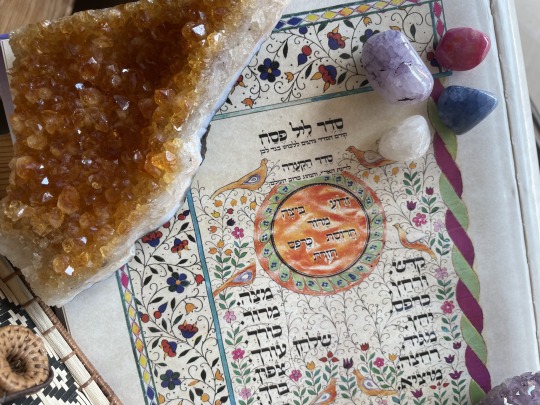
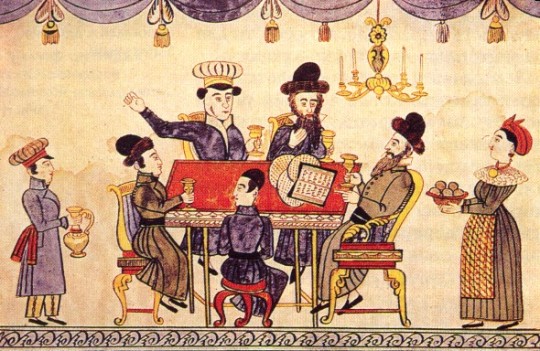





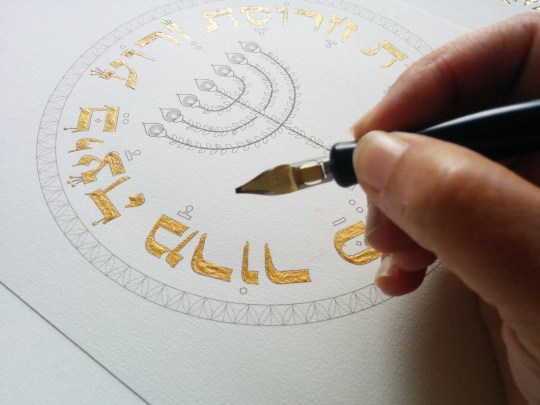
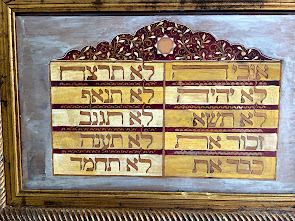





וְהִגַּדְתָּ לְבִנְךָ (שמות יג, ח)
#faith#holyland#jewish judaism#judaism#holiness#passover#pesach#jewish#holiday#biblical#ten commandments#ethics#matzo#bible scripture#sacred
19 notes
·
View notes
Text
.
#this is stepping onto fraught ground and i'm prefacing it with my own position as a non-jewish non-muslim white american#but the past 2 months i've felt myself experiencing a falling out with online leftist circles over the denial/cheering on of oct 7 violence#and more generally the authoritarian/tankie-adjacent turn i've noticed happening over the past several years in a lot of leftist circles#and it has me looking for examples of a left politics that takes pacifism and the sanctity of all human life as serious ethical principles#which i think is what is pointing me increasingly toward christian anarcho-pacifism and people like leo tolstoy and dorothy day#it's not necessarily the christianity that is essential to me although my own faith journey has been leading in that direction for years#but that i see commitment to the sanctity of all human life and refusal to celebrate or glorify violence as non-negotiables#this is not to say that i see violence as never justified under any circumstance. but the tendency for (esp. white and western) leftists#to cheer it on provided that it is deemed suitably anti-colonial and liberatory is indicative of something that has gone very wrong#also: none of this should in any way be taken as contradicting my fundamental support for the freedom of the palestinian people
30 notes
·
View notes
Text
Man it’s really fun when goyim just cannot cannot resist letting rightful criticism of Israel descend into the whole “Jews control the media.”
Take it from someone who has bitched about Hasbara for longer than you’ve known what it was. Please stop saying shit about “Israel’s PR Army.”
#antisemitism#granted the person who said this had said this kinda shit before so like. that ice is broken through#goyim gonna goy#like it’s wild because I even am like. yeah I don’t know if Israel should participate in fucking Eurovision this year but#but um. so did fucking Azerbaijan who just ethically cleansed Armenians out of Nagorno Karbakh#so like. bite me#and when you fucking say shit about her song being called “October Rain”#like you just sound callous as fuck man#I think Israel’s invasion of Gaza has been incredibly mismanaged and cruel to civilians.#but Hamas is absolutely monstrous and their massacre has left scars on Jewish souls#jfc#tag rant
11 notes
·
View notes
Text

#law#morals#ethics#lgbtqia#lgbtqia+#lgbtqia+ community#lgbtqia+ solidarity#class war#sexuality#gender#humans#human rights#ausgov#politas#auspol#tasgov#taspol#australia#fuck neoliberals#neoliberal capitalism#anthony albanese#albanese government#homophobia#anti homophobia#antinazi#anti colonialism#anti cop#anti colonization#jewish antizionism#antizionist
8 notes
·
View notes
Text
While I felt like a terrible Jew, I had the most delicious olive oil cake at an acquaintance’s shabbos dinner last night
#Rachel in real life#growing as one of the few Jewish kids in a rural town makes you feel a little divorced from the culture#like my siblings and I never went to Jewish summer camp and such#never had the urge to go on birthright (also for ethical reasons)#and my modern Hebrew is at most two or four phrases#but at least I never have to worry about tzniut!#or even negiah
3 notes
·
View notes
Text

offhandedly job searching & this had me disgust.png
#jumblr#jewish stuff#ais.txt#like ethical concerns aside for a moment#you sure you wanna leave HEBREW of all languages to ai??#this seems like a recipe for disaster#jvp seder plate levels of disaster lmao
2 notes
·
View notes
Text
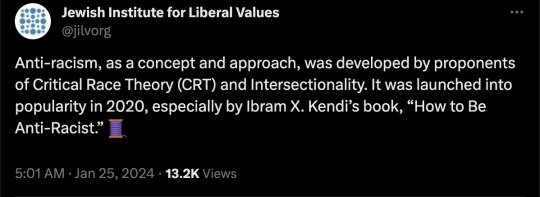
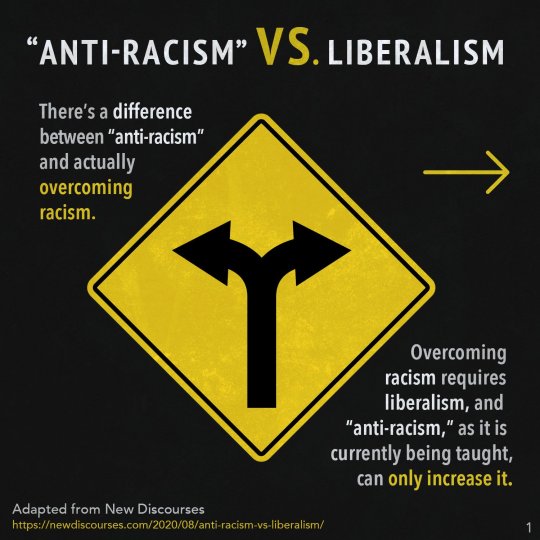
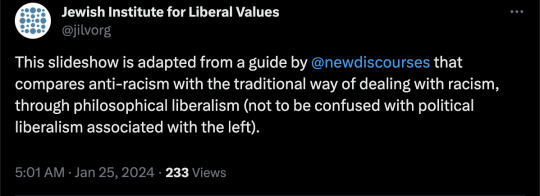
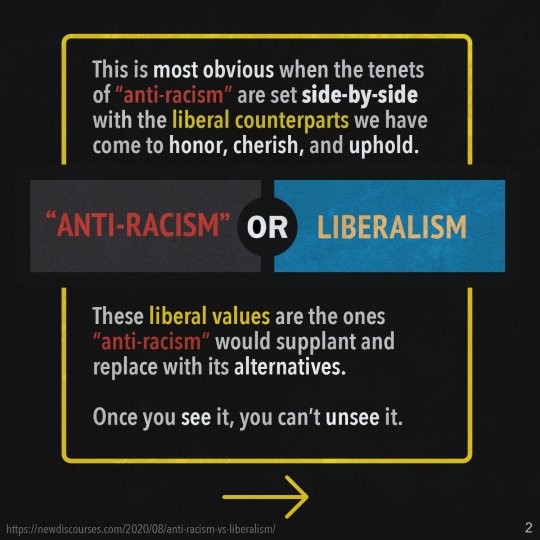
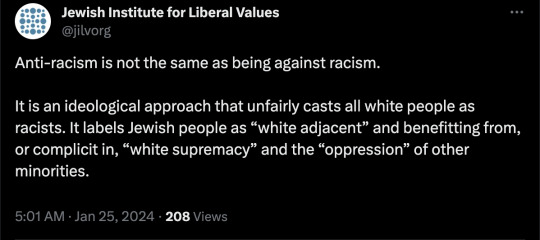
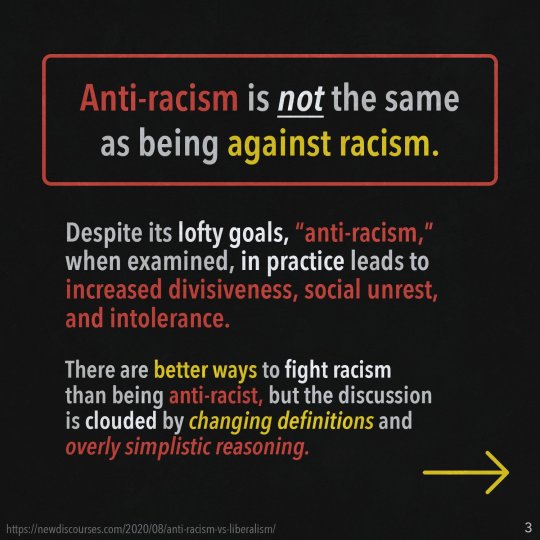
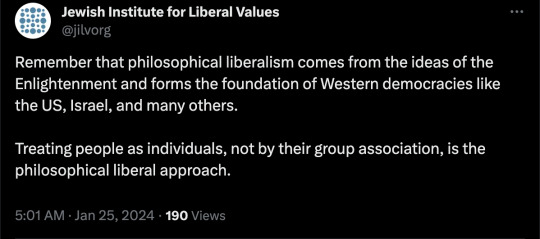
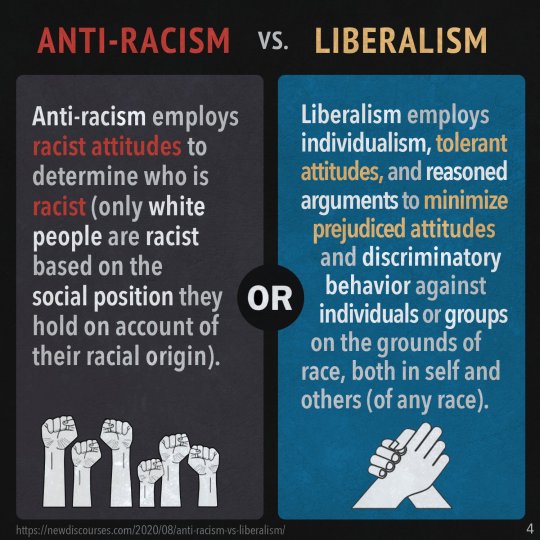

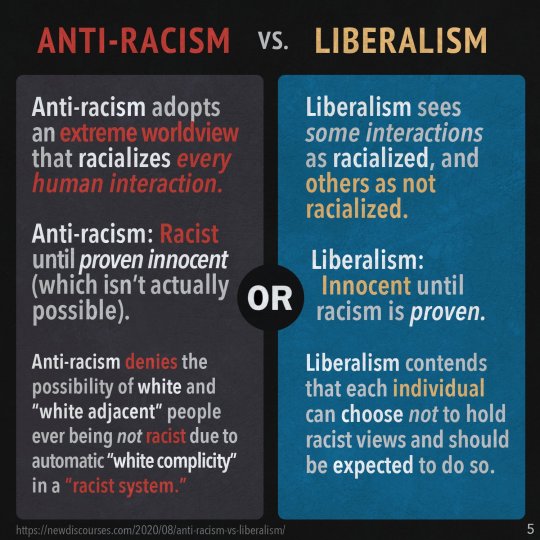
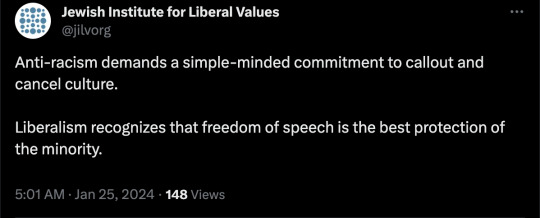
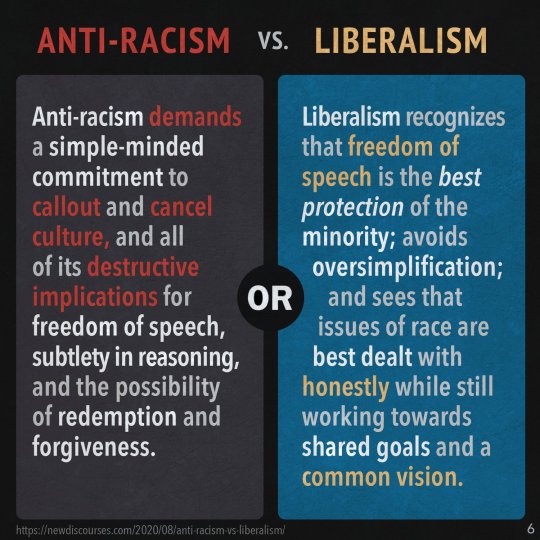
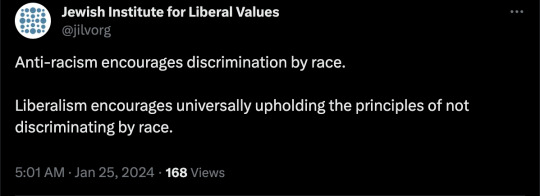
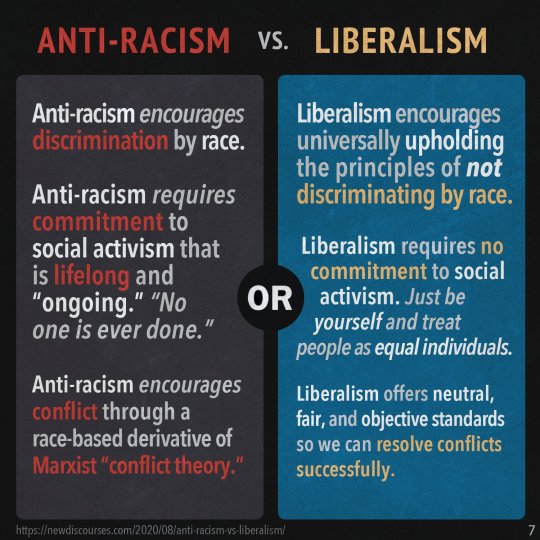
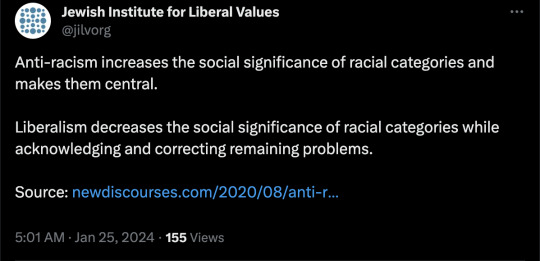
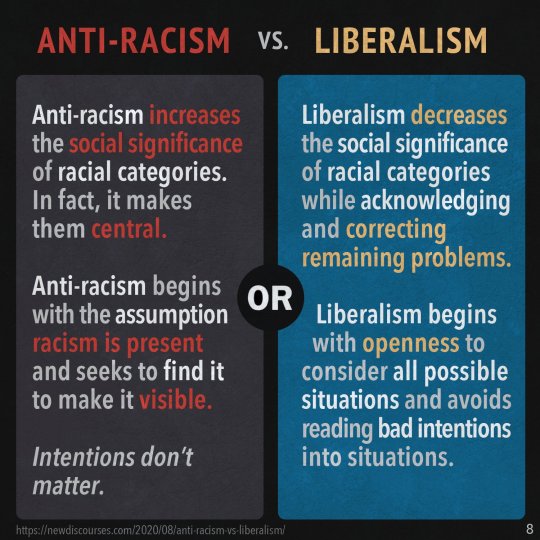
#Jewish Institute for Liberal Values#liberalism#liberal values#liberal ethics#antiracism#antiracism as religion#racial discrimination#intentions don't matter#critical race theory#individualism#collectivism
8 notes
·
View notes
Text
i have not sinned against vlaakith. she has sinned against me.
#fave line in the gaaaaaaaaame#and so representative of its central ethic—authorities are meant to serve you and not the other way around!#thee mantra of cult survivors and victims of religious abuse.#and for me personally: thee mantra of jewish antizionism / anticolonialism.#space frog#bg3
2 notes
·
View notes
Text
does anyone have any resources or advice for someone who wants to convert to Judaism, but has no Jewish friends or relatives? the someone is me, hi
#jewish mutuals…. lend me your wisdom#i’ve been agnostic for a long time but i’m very interested in Reform Judaism#i believe in its foundational ethics and logic - i want to learn more about Jewish history and contemporary beliefs
32 notes
·
View notes
Text
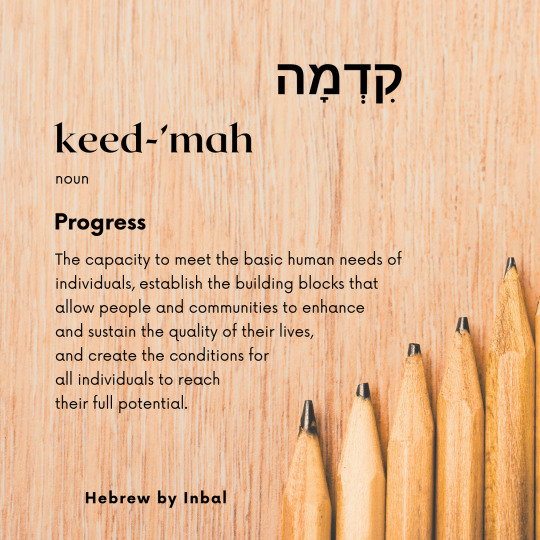
#hebrew#jewish#learnhebrew#hebrewbyinbal#language#israel#hebrew langblr#jew#torah#trending#progress#work in progress#hebrew language#learn hebrew#language learning#langblr#langblog#foreign languages#stand with israel#ethics#values#languages#hamas is isis#freedom#world peace#community#jewish culture#jewish tumblr#jumblr#israeli
17 notes
·
View notes